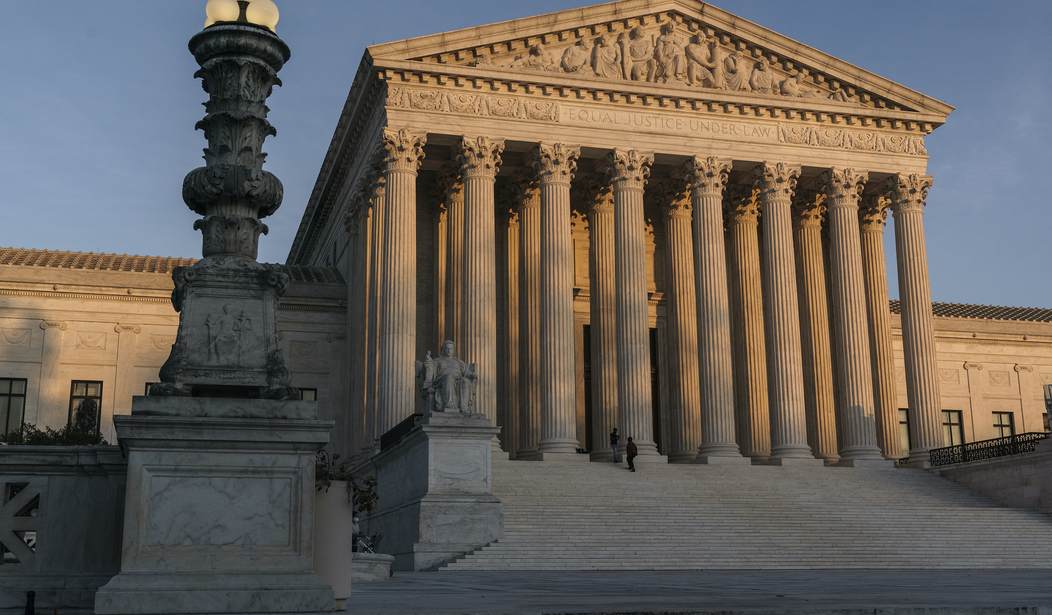In 2005, then-Sen. Joe Biden, D-Del., delivered a Senate floor speech about President Franklin Delano Roosevelt's doomed 1937 plan to "pack" the U.S. Supreme Court. FDR's plan would have permitted him to add six justices, immediately securing a pro-New Deal judicial majority. But "in an act of great courage, Roosevelt's own party stood up against this institutional power grab," Biden recounted 16 years ago. "They did not agree with the judicial activism of the Supreme Court, but they believed that Roosevelt was wrong to seek to defy established traditions as a way of stopping that activism."
In fact, Biden actually understated the extent to which Senate Democrats rebuked the iconic Democratic president's court-packing scheme. The Senate Judiciary Committee report issued at the time used eye-opening, clarion language: "Let us of the Seventy-fifth Congress, in words that will never be disregarded by any succeeding Congress, declare that we would rather have an independent Court, a fearless Court, a Court that will dare to announce its honest opinions in what it believes to be the defense of the liberties of the people, than a Court that, out of fear or sense of obligation to the appointing power, or factional passion, approves any measure we may enact. We are not the judges of the judges. We are not above the Constitution." (Indeed, public policy aside, the constitutionality of partisan court-packing is questionable, as professor Mike Rappaport of the University of San Diego argued in November.)
Roosevelt's plan was soundly defeated on the floor of the Democrat-dominated Senate, and no president or political party since has had the temerity to resuscitate the ghost of court-packing. The Supreme Court has thus sat comfortably at nine members -- eight associate justices and one chief justice -- since the passage of the Judiciary Act of 1869. But all that history will now be thrown out the window if the radical and shameless wing of an increasingly radical and shameless Democratic Party gets its way.
Recommended
During the Democratic presidential primary, Biden hedged on endorsing court-packing. During the general election, he also dithered on the question of whether he supports the once-fringe idea, instead enduring many awkward interviews where he attempted to assuage curious interlocutors by telling them they'd find out his real thoughts on court-packing only after the election. Not exactly the hallmark of a principled and confident statesman, that.
Last week, Biden signed an executive order establishing a Presidential Commission on the Supreme Court of the United States, which will produce a report analyzing, most provocatively, "the membership and size of the Court." The very establishment of the commission, regardless of its ultimate report, necessarily makes this the closest a president has come to court-packing since 1937. Even more egregious, earlier this week, Sen. Ed Markey, D-Mass., and Rep. Jerrold Nadler, D-N.Y., introduced a bill, the Judiciary Act of 2021, to add four seats and thus establish a 13-justice Supreme Court. In Nadler's dystopian Newspeak, such a bill amounts not to "packing" the Court, but to "unpacking" it. Alas, we have come a long way since the scathing Senate Judiciary Committee report of 1937.
In a 50-50 Senate that includes Sen. Joe Manchin, D- W.Va., and still (as of now) retains the legislative filibuster, the Judiciary Act of 2021 is unlikely to advance very far. Indeed, for what little it may be worth, House Speaker Nancy Pelosi, D-Calif., has already said she has "no intention to bring" the bill to the House floor. But the Democrats' move on court-packing is still important for at least two reasons.
First, it provides the clearest structural evidence yet for the transparently political approach the left takes to the judiciary. This has already been obvious for decades, as a jurisprudential matter; what is "living constitutionalism" if not the thinnest veneer imaginable for jurists to bestow legal legitimacy to favored progressive policy outcomes? The right would be mistaken to respond to the present moment with trite appeals to a purportedly neutral legal proceduralism -- far better to argue for a more morally informed and substantively cogent jurisprudence, such as what I call "common good originalism."
Second, the current bluster can be seen as a power play to cow into submission those weak-kneed Republican-appointed justices, such as Chief Justice John Roberts, who profess above all else a concern for the Court's ostensible "institutional integrity." It is perhaps old hat to criticize the decades-long failure of Republicans to nominate consistently conservative, strong-willed justices, but maybe, just maybe, Republicans will respond to the now-inevitable further shift leftward of Roberts (and likely others) by finally prioritizing such important judicial nomination criteria as full-spectrum conservatism, commitment to resisting the siren song of the proverbial "Georgetown cocktail party," and eagerness to aggressively correct course.
As a practical matter, court-packing would set in motion a series of interminable recriminations by which the Court would transmogrify into even more of a super-legislature than it already is. But as shameful as the present stunt is, it is at least clarifying insofar as we see how Democrats consider no assertion of raw political power to be off the table. Whether Republicans will learn any meaningful lessons, or instead merely content themselves with the court-packing plan's foreseeable failure, remains to be determined.

























Join the conversation as a VIP Member